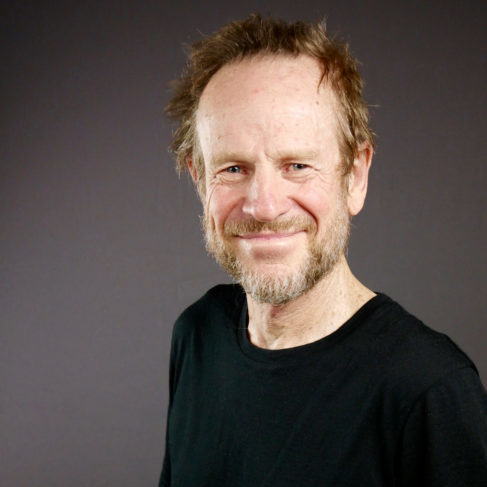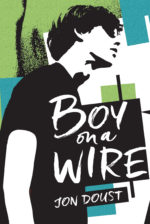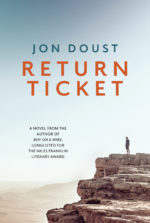Jon Doust takes you back into WA’s comedic history to celebrate WA Comedy Week

A showcase of WA comedy, featuring twenty-five shows over four venues across Perth, is taking place this November. Some of WA’s funniest ever are performing at WA Comedy Week to remind us all where they came from.
Jon Doust – who will not be in the showcase as he is way too old, no longer funny, and lives a long way south where he grows his own food – began his comedy career in boarding school and was caned for it. He has also written a few novels and one of them was longlisted for the Miles Franklin Literary Award, while his latest work, Return Ticket, got lost in the nightmare we call COVID-19.
The History of West Australian Comedy (Part 1)
The first dedicated stand-up comedy room in Perth was Jimbo’s Comedy Store. It opened in 1984 and was named after a bloke called Jim, who ran it with a partner. Neither Jim nor his mate, whose name was never remembered even then, were funny or had any entertainment experience.
From memory, which is not reliable, they were both tradesmen of some sort, maybe plumbers or plasterers, and they heard about this new ‘comedy thing’ and thought they could make a few quid out of it.
They were not good at it. Among their favoured performers was an act called The Animal. Animal had almost no comic material, and was also not funny, but got a huge laugh with his punchline – the removal of his plump penis from his pants. Was it a laugh? More a sort of gasp with follow-up noises that sounded like laughter.
Among the gang that started out at Jimbo’s – and who are still in the business in one or more ways – were Ray Matsen (Ed Flakk), Stig Wemyss, Frank Minutello (Frankie Rooster) and Nick The Noise.
I got my start there, performing as a loose-brained nutcase called George Gosh. No, hang on – that’s the thing about memory, it fades, adjusts, embellishes and reinvents. That George was the second coming. The first George was simply a toothless me billing himself as Australia’s answer to Karl Marx. And then there was my South African Afrikaner apologist, Pik vander Shovel, whose mad racist rants were, sadly, sometimes believed rather than recognised as a satire on a repugnant regime. Those were early days in Perth comedy, with both audiences and comedians raw and untrained.
Some of us joined a group called The Crazy Gang that ran nights in suburban hotels. One night, after I delivered a vicious attack on Rolf Harris, an intensely irate and offended man strode aggressively to the stage yelling support for the maligned groper and slapped my face.
All of us wanted to be on the ABC’s Comedy Video Store. Most of us never made it. I think both Frankie Rooster and Nick the Noise got spots and were introduced by the MC Rodney Rude, as did Kevin Bloody Wilson, and when he did, some of us didn’t want to anymore.
We were New Wave. Our heroes were the BBC’s The Young Ones, featuring Alexei Sayle, Ben Elton, Rik Mayall, Adrian (Ade) Edmondson and Nigel Planer. We were anti-comedy-establishment and that meant Max Kay, old-style music halls, Bob Hope, Bob Dyer and all who peddled smut and mother-in-law jokes. Or was that just me?
That’s another thing about the past, we often think the way it was for us was the way it was for everybody. I already had an idea it might have been different for me because none of the other comedians had been hippies, not even the bloke who later called himself ‘Hippie’, although the longer he did his routine, the more he looked like one. And none of the others had come from a small South West farm or lived the socialist dream on an Israeli kibbutz in a time of war.
In no time at all, there were other comedy rooms. Brains for Concrete at The Wizbah, an underground nightclub under Hay Street, followed by The Pink Galah Cabaret at The Melbourne Hotel and The Gag Factory at The Stoned Crow in North Fremantle.
When Rodney Rude came to town, four of us got to support him at The Pink Galah. Again, never trust an aging memory, but mine tells me Ed Flakk did all right the four nights, while George Gosh died the most miserable of deaths on night one, but recovered to kill on night two and survive the last shows. Rodney, of course, slayed every night.
There were only about ten of us working all the rooms, so if you went to Jimbo’s one night and thought, ‘that was a bit shit, think I’ll try The Stoned Crow’, you’d turn up to see the same line-up, which included those already mentioned and Red Backspida, Eileen Glynn, Felicity Lewis (Raelene Tuggs), Therese Edmonds, Phil Strutt, Stinger Nettleton and Sam Spiccia (Sam Sewerage).
We always hoped that at least one of us would cut the room up, and if we all killed then we’d be on a high for a week.
Then it all collapsed in a heap. Those who had grown to love the stand-up life were left to wander around seeking odd gigs here, there and anywhere, joining small comedy sketch troupes and performing alongside wayward minstrels with a comic bent.
Then, in the late 80s, along came Rodney Stationwagon, also known as Chris Dooley. Dooley started up a night at Club 242 in the Leederville Hotel and away we went all over again.
Back came Wemyss and Matsen, this time as The Deadly Brothers and those two boys, for they were not much more than boys back then, provided me with the best laughs I’d ever had from local comedians. I never thought much of my own acts, as I felt they were always a massive compromise, but the Deadlys hit a spot.
I never thought of myself as funny at all, but people had been laughing at me from an early age because of the way words came out of my mouth and what went on around my lips and eyes. I often wonder if many other comics fell into the business without an understanding of why others thought them funny. You learn, of course, and that’s what helps you survive.
Matsen and Wemyess had been in an earlier incarnation, calling themselves The Born Again Yuppies, and Matsen reminded me that Frances O’Connor had joined them for a time and then left to go on and forge a career in movies.
In those early days a couple of aspiring comics left town and made solid careers in other climes – Jim Dailakis in the US and Brendon Burnes in the UK.
Among the others who trod the flimsy boards at Club 242 were Pat McGroin, The Skid Kickers, Melody Rosengreen, and Kim the Crazy Clown, who Dooley remembers best for getting his chook drunk before it took part in his magic act. I remember Kim best when a couple burst backstage one night arguing about his gender. Quick as a flash, he flashed, and the coupled left satisfied.
This decade of madness, the 1980s, full of comic triumphs and even more comic failures, meant that by the time The Actors Centre opened its door to reveal The Comedy Club in the very early 1990s, and then the New Comedy Store ripped a door off its hinges at The Brass Monkey, there was a small pool of local stand-ups who could hold their own and not die the cruel and heartless death of the uninitiated.
Those first two waves of performers included Don Smith, Gino Pepsicola (Steve Turner), Alan Charlton, Stevie Dimitriadis, Megan Ann Bob, Alan Brown (Vic Demised), Andy Brown, Monica Main and David Lennie. And we all embraced the legendary Geoff Kelso, Damian O’Doherty, The Sensitive Young Men (Judy Bridge and Susan Prendergast), and Murk and Turk (James Sollis and Douglas Walker), The names just keep arriving, and now I’m old I have to put them down quick or they leave me and I may never find them again. There were more, but my head lost them.
I also recall two chaps from that time who left town to forge theatrical careers in other countries – Glenn Hayden in India and Sean Masterson in Singapore. And a gang of us in 1991 made a video pilot called Comedy Co-op at Club Bayview in Claremont. It did not sell.
What was next? The Laugh Resort. But that’s another story, stacked with a pack of new names, many of whom are still working now.
Check out WA Comedy Week and book your tickets on their website: www.wacomedyweek.com




